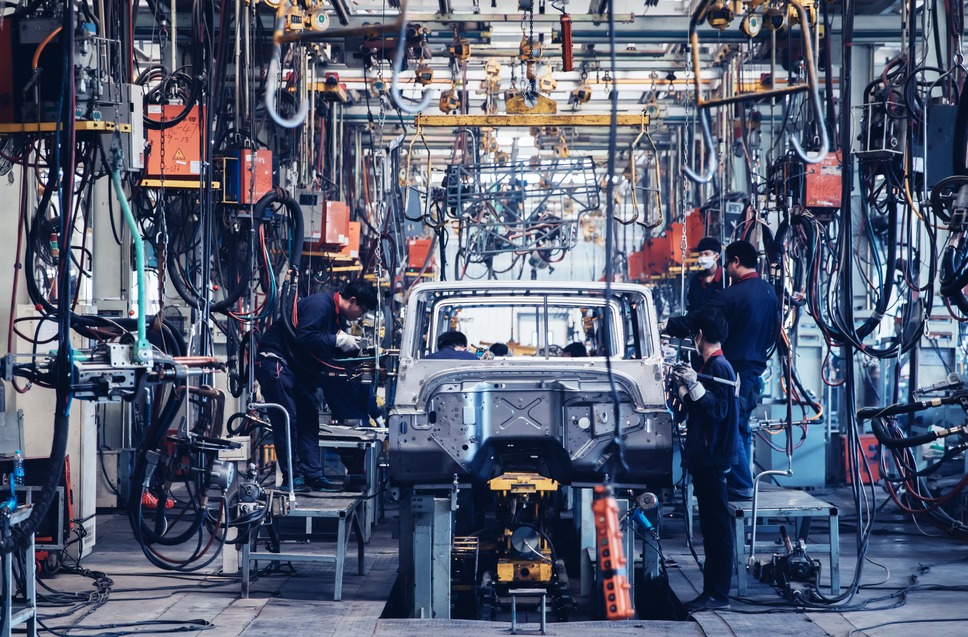Automotive Recruitment: Adjust Benefits to Attract Talent
Automotive recruitment and staffing are shifting with changes in demand, technology and supply chains. The focus is on hiring and retaining skilled trades talent.
One challenge is internal. Automakers must protect productivity while supporting workers’ health and safety. Suppliers face similar pressures across materials and components, and the talent market remains competitive.
As the industry adapts, manufacturers face familiar challenges in retaining and attracting talent. Benefits, incentives and culture are proven levers to strengthen hiring.
We spoke to Director of Strategic Accounts Dan Stiles about creating solutions through utilizing benefits, incentives and shifts in workplace culture to attract and retain talent. Overcome your recovery staffing challenges by considering these tips.
Invest in Career Growth to Strengthen Automotive Recruitment
The auto industry has been facing a certain reality for decades — skilled trade workers are in short supply. Younger generations have gravitated towards opportunities in professional services, lured by the promise of pay and benefits.
Wooing automotive trade workers isn’t as easy as increasing wages. As profit margins increasingly shrink, substantial wage increases can impact the entire industry. That’s not to mention impacts on a cultural level.
“Tenured workers would likely be put off by increased starting wages after it’s taken them years to work up the ladder,” Stiles explains.
Instead of immediately turning to wages, manufacturers should consider boosting upskilling and other career growth opportunities to keep workers interested. Part of the reason for the lack of skilled trades workers is that professional jobs often offer a clearer path for growth. Auto manufacturers should take note and build out ladders for enhancement to give employees a path forward. If workers see a future for themselves in terms of seniority and pay, then they’re more likely to stick to the job.
Invest in Benefits That Attract Automotive Talent
Maintain a balanced perspective when thinking about your employees. Stiles states that “It’s important for employers to put themselves in their workers’ shoes, and ask: ‘What’s in it for me?’”
Many manufacturers have been thinking of creative solutions to answer this question. They’ve begun to compete with other industries and offer benefits that demonstrate their care for employees. For example, Volvo has recently expanded its paid parental leave program by giving all 40,000 workers 24 weeks of leave starting in April 2021.
Funding employee learning and education is also an example of investing in your employees. This can range from tuition reimbursement to creating skills programs for your employees to gain more experience and knowledge. When workers feel that you’re taking an active role in their career, job loyalty is likely to increase in the long term.
Build Culture to Support Automotive Staffing
Part of the allure of working in the automotive industry is getting to be close to a favorite brand or the latest technology. Because of this, one of the biggest draws for potential employees is the opportunity to “become part of something big,” as Stiles describes.
And so, embedding employees with a sense of company culture is essential. To engage workers, consider introducing various “perks” that foster a sense of company-wide cohesion and unity. This can include a vibrant HR team that organizes events or bonding activities.
Companies from various industries are seeking similar skills as automakers. The pressure is on auto manufacturers to update their employee engagement strategy or risk getting left behind. Investing in your culture not only incentivizes and benefits employees but also makes your organization a more inviting workplace.

Partner with an Automotive Staffing Agency
Tackling the puzzle of retaining and attracting talent during pandemic recovery is not an easy task. However, restructuring your benefit and perk packages to offer extra incentives for employees will help immensely.
Contact us to learn more about adjusting benefits across multiple industries, including automotive.
FAQ: Automotive Recruitment and Staffing
1. What benefits are currently helping automotive recruitment?
Paid parental leave, flexible or compressed schedules, shift differentials, tuition assistance, tool or boot stipends, referral bonuses and clear PTO policies all help attract talent.
2. How can automakers compete without raising base pay?
Offer predictable shifts, training on paid time, certification sponsorship, attendance and retention bonuses, and faster advancement for high performers.
3. What cultural practices improve retention in automotive staffing?
Prioritize safety, frequent supervisor communication, recognition programs, well-run onboarding and visible career paths. These build trust and reduce turnover.
4. How should we structure career paths and upskilling?
Use a tiered ladder with defined skills for each level, on-the-job training, mentorship and cross-training between lines. Tie pay steps to verified skills.
5. When should we partner with an automotive staffing agency?
Engage a partner for high-volume ramps, hard-to-find skills, seasonal surges or new plant launches. Agencies provide screened talent, market insights and flexible hiring options.
